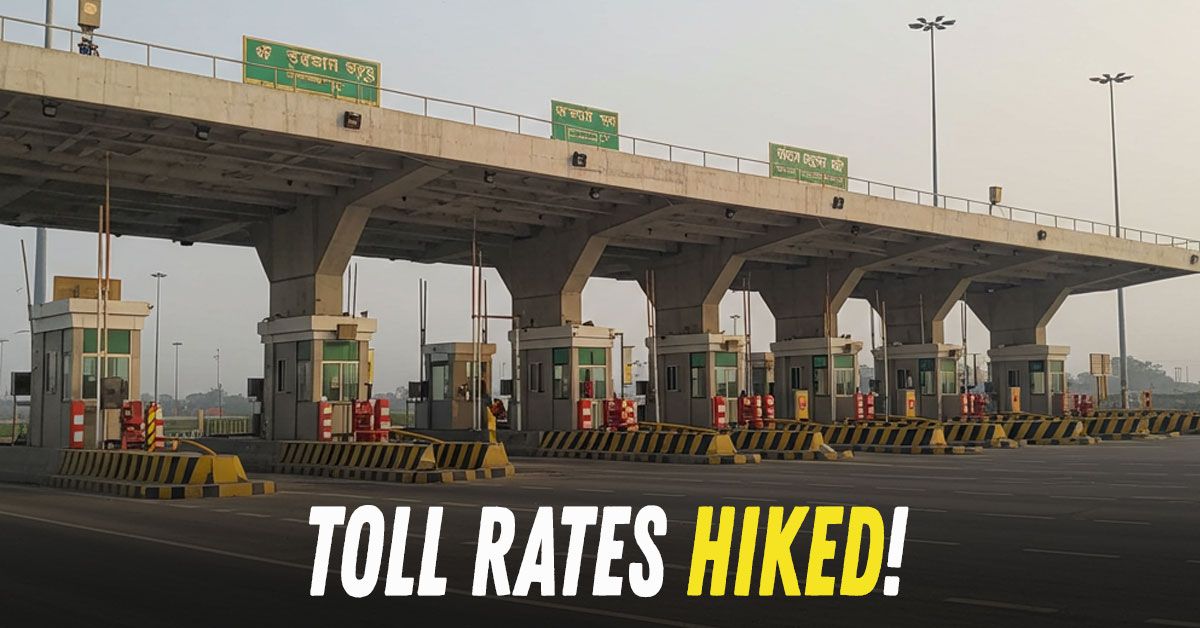Toll Price Hiked Across India: Get Ready To Pay More On Both Highways And Expressways


The National Highways Authority of India (NHAI) has announced a hike in toll charges with effect from April 1, 2025. The new rates apply to 855 toll plazas across the country, including both government-operated and privately managed ones. An increase of 4-5 Percent has been brought about.
NHAI revises toll charges every year under the National Highways Fee Rules (Determination of Rates and Collection), 2008. The latest of such applies to 675 public toll plazas and 180 private toll booths. Major roadways like the Delhi-Meerut Expressway, NH-9, Eastern Peripheral Expressway, and Delhi-Jaipur Highway are affected by the hike.
While the new rates will bother motorists for sure, transport and logistic companies will likely take a bigger hit. Also to be said is the fact that this is the second time that the toll rates are hiked within a year. The last upward revision was in June 2024. Back-to-back hikes can be a concern for travellers for sure.
Officials say that the new revision would vary across different highways. The additional revenue collected will be used for highway maintenance, expansion projects and future infrastructure improvements. Authorities also argue that consistent investment in national highways will lead to better roads being built and in the long run, faster travel times. These will likely be fuelled by the money from the revision.
Toll plazas and collection systems have been around for long. Many have over the years, questioned them for collecting money even after the concession period. Likely in response to this, Gadkari's Ministry of Road Transport and Highways recently states that 'tolls are collected in perpetuity.'
In a recent speech at the Rajya Sabha, the minister stated (via News 18) that toll collection will not stop. He was in fact, responding to a request asking for periodic audits of toll plazas. Such audits would give a clear picture of if the money invested in the roadways has been collected back. From Gadkari's remarks, it seems like such an audit will not be implemented. The toll, according to the minister is the user fee that motorists pay the government to access the highways and thus would be collected in perpetuity.
According to the National Highways Fee Rules, after the concession period ends, contractors transfer the colletion to the government or its agencies. Such tolls are applicable to national highways, bridges, tunnels, and bypasses.
Even though Union Minister has dismissed the need for toll audits, there are strong reasons why they should be conducted. Toll collection is a major source of government revenue, and ensuring transparency in how this money is managed is crucial for keeping public trust alive.It would provide clarity on the actual amount being collected versus how much is being spent on road maintenance and infrastructure projects.
Since these directly impact millions of commuters, the government should be transparent about the financial flow. Without an audit, the public remains in the dark about whether these funds are being used efficiently. And finally, citizens have the right to know where their money is going.
Recently, a man from Maharashtra had filed a PIL (Public Interest Litigation) raising concerns against NHAI’s decision to collect double the toll amount from vehicles which are not fitted with a FASTag. It also stood against the proposed conversion of cash-lane into FASTag-only lanes.
The Bombay High Court, however, ruled in favour of the government. The ruling stated that the toll collection is based on the National Highways Fee (Determination of Rates and Collection) Rules, 2008, which also allows toll collection policies like FASTag to be implemented. The court also said that vehicles without a FASTag can use the designated left lane to pay in cash, but will have to pay double the standard charges. This, it says, is not a penalty, but an officially prescribed toll fee under the 2008 rules.
While FASTag has streamlined toll payments, the government is now working on an even more advanced system—GPS-based toll collection, also known as the Global Navigation Satellite System (GNSS).
Unlike FASTag, which depends on fixed toll booths, GNSS will use satellite tracking to calculate toll charges based on the exact distance travelled on a highway. This means drivers will pay only for the distance they cover.
The shift to GNSS will not happen overnight. The government plans to introduce it in phases, starting with a hybrid model that combines GNSS with FASTag. This gradual transition will allow for smoother adoption while ensuring better efficiency in toll collection.